Lincoln University’s Pest Management Program Saves Crops, Strengthening Sustainable Farming and Food Security in Southeast Missouri Community
Office of Communications and Marketing
Young Hall
820 Chestnut Street
Jefferson City, MO 65101
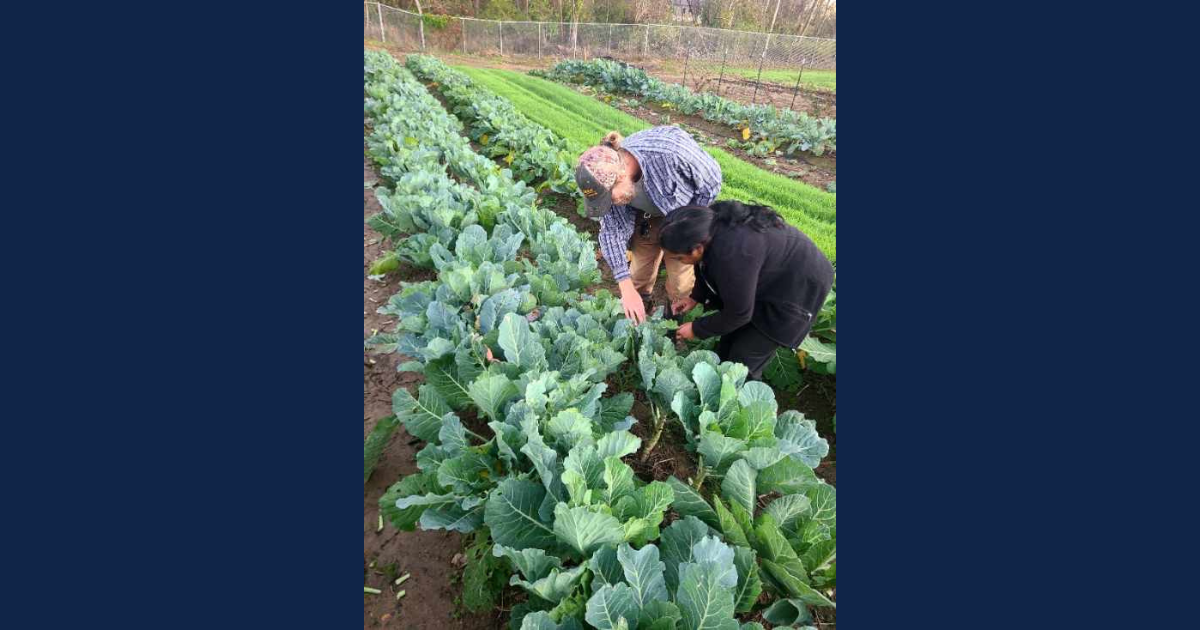 IPM Extension Specialist Anitha Chitturi, Ph.D., examines damaged crops with South Side Farms Manager Jake Smith to assess pest impact and develop tailored solutions for recovery and crop health.
IPM Extension Specialist Anitha Chitturi, Ph.D., examines damaged crops with South Side Farms Manager Jake Smith to assess pest impact and develop tailored solutions for recovery and crop health.
With rising inflation and food costs, more American families are struggling to put food on the table. In food deserts — areas with limited access to affordable healthy food — and barriers such as low income and unreliable transportation disproportionately impact communities of color and low-income residents. In Cape Girardeau, Missouri, South Side Farms is tackling food insecurity by producing high-quality, sustainable produce for the South Cape community. However, the farm faced a significant challenge in September: a severe pest infestation threatened to end their entire fall growing season. Determined to save their crops and continue serving their community, Executive Director Maurice Theriot turned to Lincoln University (LU) Cooperative Extension’s Integrated Pest Management (IPM) Specialist, Anitha Chitturi, Ph.D., for expert guidance.
Serving around 800 individuals directly and contributing over 6,000 pounds of fresh food directly into the local food supply chain this year through farmstands, donations to local food banks, shelters and non-profit organizations, the farm plays a vital role in addressing hunger in the region. “At South Side Farms, we pride ourselves in serving our community and listening to what they want us to grow," Theriot said. "We serve a sizeable African American population, and we were asked to grow more leafy greens. The pests were really threatening to destroy our entire crop, including the 400 collard plants requested by the community, nearly ending our growing season.”
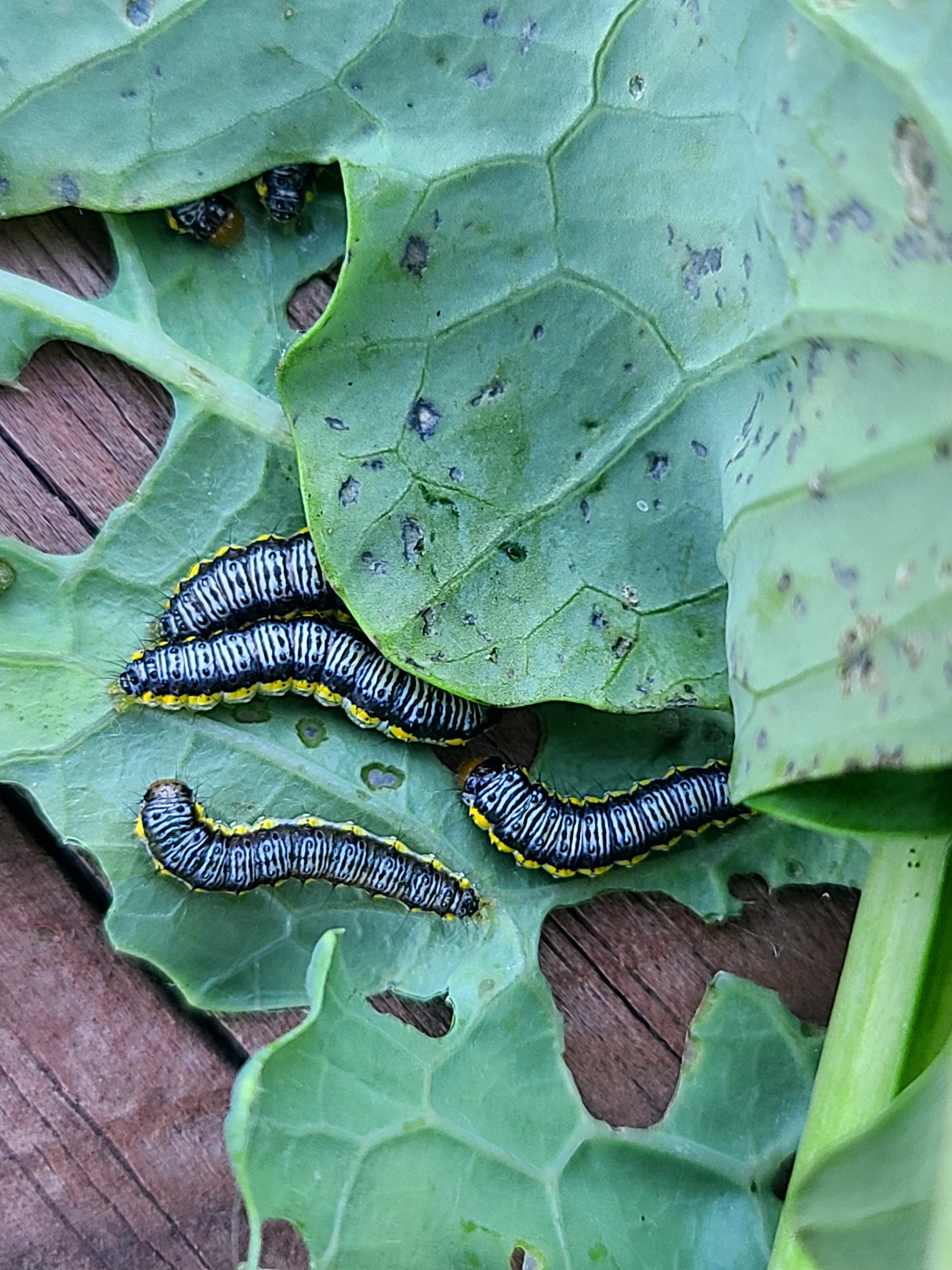
Cross-striped cabbageworm larvae, one of the three pests that caused significant damage to crops on South Side Farms.
Chitturi quickly identified multiple pests, including the cabbage looper, diamondback moth and cross-striped cabbageworm. To mitigate the damage, she recommended organic pest management techniques such as hand-picking larvae, removing and discarding affected leaves, using soapy water and applying Bacillus thuringiensis (Bt), a biological pesticide alternative.
“It was smart of Maurice to reach out early on,” Chitturi said, emphasizing the unique obstacles small farmers face. “It’s more challenging for small farmers growing on less acreage because by the time they realize that there is damage to their crop, and the measures needed to protect it, the damage may already be done.” Acting early helped South Side Farms prevent further loss and maintain their commitment to organic practices.
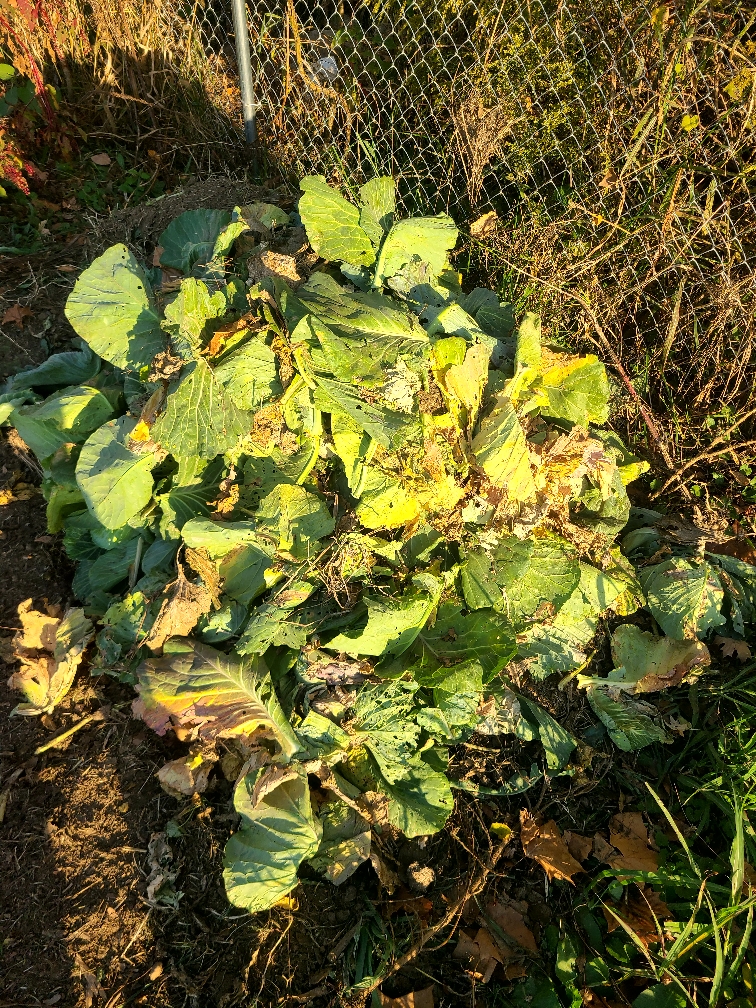
A collected pile of damaged and diseased leaves removed by Maurice Theriot and his team to safeguard crop health and prevent further spread of pests and disease.
Theriot, his Farm Manager Jake Smith and Operations Manager Wyky Jean, diligently followed Chitturi’s guidance, removing damaged leaves in stages to avoid shocking the crops and adhering to a strict regimen of Bt spray applications. Unlike commercial farmers who rely on synthetic insecticides, South Side Farms embraces labor-intensive organic methods. “Being an organic farm, we don’t mind spending a little more time doing more than your traditional farms that use synthetic pesticides,” Theriot said, highlighting their dedication to sustainable farming.
In addition to pest management, Chitturi suspected bacterial black rot caused by insect feeding and humid weather conditions. Leaf samples were sent to Lincoln University, where plant pathologist Waana Kaluwasha, Ph.D., confirmed the diagnosis. Within four weeks of implementing the organic pest management tactics, the crops rebounded significantly.
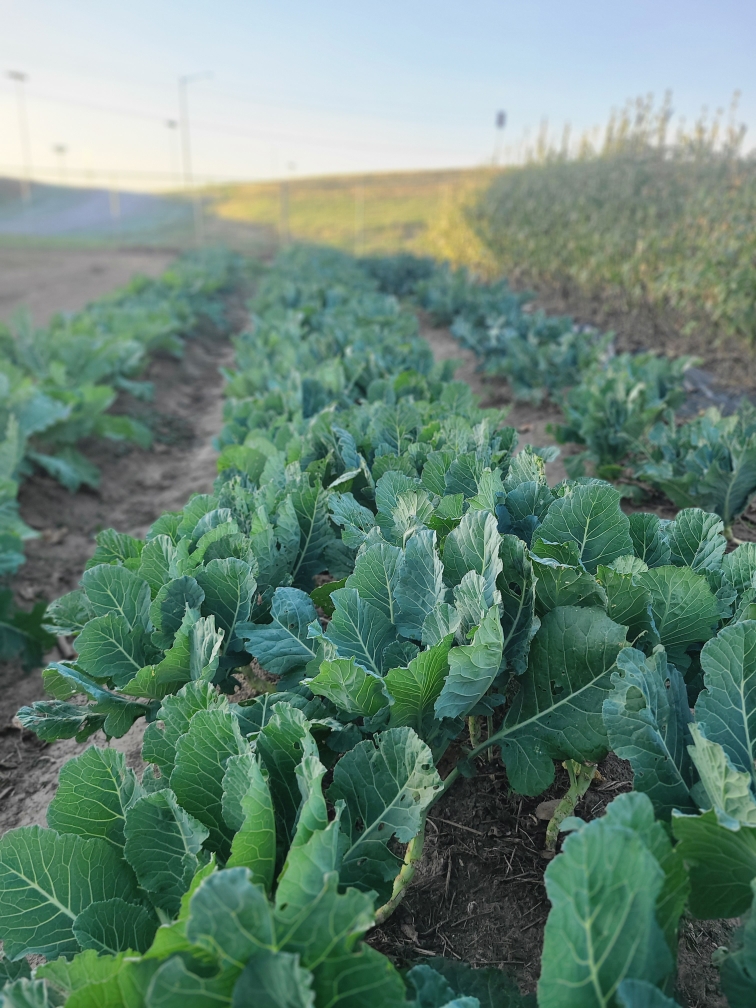
Revitalized collard crops are now healthy and thriving after effective pest management and care.
Food insecurity affects 13.5% of U.S. households, with Black and Latino communities experiencing the highest rates. Missouri’s numbers exceed the national average, with 16.4% of households impacted. Southeast Missouri, including Cape Girardeau, sees at least 15% of residents experiencing food insecurity, underscoring the need for local interventions like South Side Farms.
Looking ahead, South Side Farms is expanding its operations with a grant from the Missouri Department of Agriculture, allowing for new equipment, greenhouses and extended growing seasons. They also plan to continue collaborating with Lincoln University Cooperative Extension for ongoing pest management and developing South Side Farms as a research demonstration site for IPM practices. This will provide a blueprint for sustainable agriculture and equip underserved farmers with invaluable IPM training. Lincoln University’s collaboration with the farm highlights the critical role the institution has played in transforming challenges into opportunities. The timely intervention and technical expertise of Chitturi and LU’s Extension IPM Program not only safeguarded South Side Farms’ crops, ensuring continued support for the community’s food security but also strengthened the farm’s dedication to sustainable and organic practices.
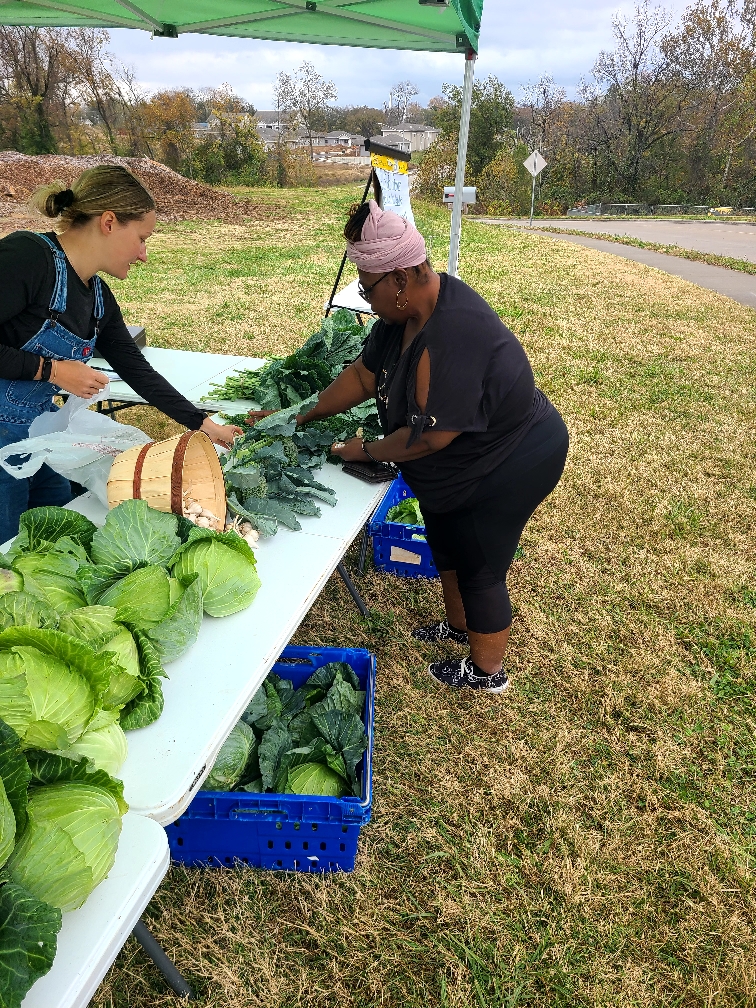
Freshly harvested collard greens, saved through organic pest management, are sold to local community members.
For any questions or assistance on your farm with pest management, please contact Anitha Chitturi at this link.
